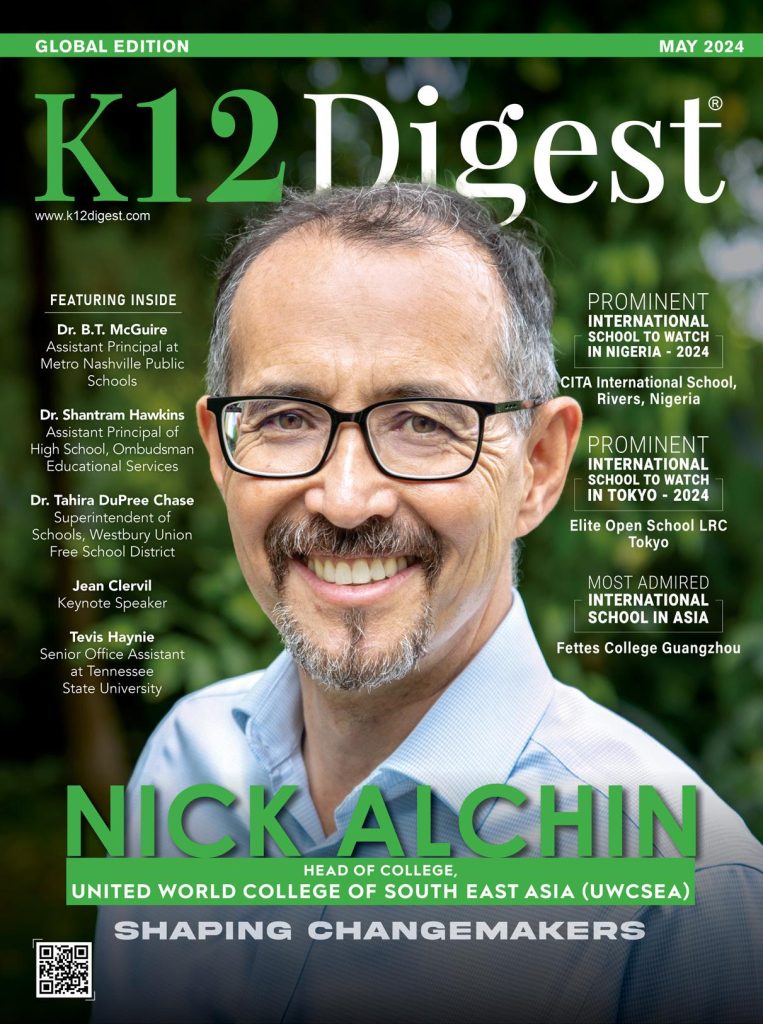Resilience in Education: Growth Mindset Techniques for Nigerian Students

Understanding Resilience in Education
The world we inhabit is dynamic, characterized by rapid changes and unexpected challenges. For Nigerian students, the journey through education can be particularly daunting, requiring not only academic prowess but also a strong sense of resilience. This resilience can be cultivated through a growth mindset, a concept developed by psychologist Carol Dweck which emphasizes the belief that abilities and intelligence can be developed through dedication and hard work. By fostering this mindset, students can face adversities with strength and clarity.
Positive Affirmations: Fueling Self-Belief
One practical method for nurturing a growth mindset is the use of positive affirmations. These statements promote self-confidence and reinforce the understanding that challenges are surmountable. For instance, students can begin their day by reciting affirmations such as, “I am capable of overcoming obstacles” or “Every setback is a setup for a comeback.” This technique encourages a proactive approach to learning, instilling a positive internal dialogue that can be crucial when faced with academic pressures, such as the challenges of preparing for the Unified Tertiary Matriculation Examination (UTME) in Nigeria.
Embracing Failure: Learning Opportunities
In a society that often views failure as a shameful experience, Nigerian students must learn to embrace failure as a valuable component of the learning process. This reframing encourages students to analyze what went wrong and how they can improve. For example, a student who receives a poor grade on an exam can reflect on their study methods and seek help, instead of succumbing to discouragement. Television series and motivational talks often highlight stories of successful Nigerians who faced numerous setbacks before achieving their goals, showcasing that resilience and determination can lead to success regardless of previous failures.
Goal Setting: The Path to Achievements
Another fundamental aspect of cultivating a growth mindset is goal setting. By establishing specific, measurable, achievable, relevant, and time-bound (SMART) goals, students can focus their efforts and track their learning progress over time. Instead of overwhelming themselves with the vast curriculum of secondary school or university subjects, they can break their studies into manageable portions. For instance, a student might set a goal to read one chapter of their textbook daily while preparing for exams, allowing them to celebrate small victories along the way.
Navigating the Nigerian Educational Landscape
Nigerian students encounter a plethora of hurdles, including socioeconomic challenges, inconsistent access to educational resources, and intense competition. By implementing strategies that emphasize a growth mindset, these students can not only improve their academic performance but also develop crucial life skills such as adaptability, perseverance, and critical thinking. Resilience is not merely about weathering the storm; it is about learning to dance in the rain.

This exploration of growth mindset techniques aims to provide Nigerian students with the tools necessary to not only endure hardships but to emerge stronger and more capable. As we delve further into actionable strategies, we recognize that fostering a growth mindset could empower the next generation to face their futures with optimism and resilience. Join us on this enlightening journey, as we unearth transformative techniques tailored to the unique challenges of the Nigerian educational landscape.
ADDITIONAL INSIGHTS: Expand your understanding here
Essential Techniques for Building Resilience
To effectively cultivate resilience in education, Nigerian students need to adopt a range of growth mindset techniques that empower them to face challenges head-on. These techniques not only help students to improve academically but also to become more adaptable individuals in a constantly changing world. Here are some practical strategies that can be employed:
Seeking Feedback: Constructive Criticism as a Tool
A critical aspect of developing a growth mindset is the ability to seek feedback from teachers, peers, and mentors. Instead of viewing feedback as a judgment of their capabilities, students should see it as an opportunity for growth and self-improvement. For example, engaging in group studies allows students to exchange insights and receive constructive criticism on their understanding of the subject matter. This collaborative approach makes learning more dynamic while reinforcing the idea that improvement is always possible.
Mindfulness Practices: Staying Present
Integrating mindfulness practices into daily routines can significantly benefit Nigerian students in managing stress and enhancing focus. Mindfulness techniques, such as meditation or deep-breathing exercises, enable students to remain present and centered, reducing anxiety about upcoming exams or academic assessments. Studies have shown that practicing mindfulness can enhance emotional regulation, improving resilience in stressful situations. Students can set aside a few minutes each day to practice mindfulness, preparing themselves mentally to face any challenges ahead.
Building a Support Network: The Power of Community
Having a reliable support network is essential for fostering resilience. Students should identify friends, family members, or mentors they can turn to in times of need. These connections provide encouragement and motivation while reminding students that they are not alone in their struggles. Participating in study groups or clubs can also create an environment in which students can share experiences and learn collaboratively. The solidarity found in community can prove invaluable, especially when navigating the demanding Nigerian education system.
Resilience-Building Activities: Engaging in Extracurriculars
Engagement in extracurricular activities plays a crucial role in shaping a student’s resilience. Beyond the classroom, students can explore various clubs, sports, and cultural activities that resonate with their interests. Such involvement not only promotes teamwork and interpersonal skills but also boosts self-esteem and fosters a sense of belonging. Whether it’s participating in local debates, joining an art club, or playing on a football team, these activities offer a platform to build resilience through collaboration and personal growth.
- Join Study Groups: Collaborate and learn from peers.
- Practice Mindfulness: Engage in meditation or breathing exercises.
- Participate in Extracurriculars: Explore interests outside academics.
- Get Feedback: Learn and grow from constructive criticism.
- Develop Support Networks: Build strong relationships with mentors and friends.
By embracing these growth mindset techniques, Nigerian students are poised to navigate the academic landscape with greater resilience and confidence. The journey of education is not merely about acquiring knowledge; it is also about cultivating the ability to rise above obstacles and thrive in an ever-evolving world.
| Growth Mindset | Advantages in Education |
|---|---|
| Encouragement of Effort | Students learn to value hard work, which leads to better academic performance and personal growth. |
| Resilience in Challenges | Students become more willing to embrace setbacks as learning opportunities, fostering a deeper understanding of subjects. |
The theme “Resilience in Education: Growth Mindset Techniques for Nigerian Students” transforms how students perceive learning challenges. By cultivating a growth mindset, students not only learn to tackle academic tasks but also develop an appreciation for failure as an integral part of success. This pivots the narrative from fear of failure to a platform for creative problem-solving. Moreover, as educators implement these techniques, classroom environments become less about competition and more about collaborative learning. Encouraging peer feedback and group discussions empowers students to express their thoughts freely, leading to a rich exchange of ideas. Integrating real-life challenges and scenarios into lesson plans makes education more relevant, engaging, and resonant with the experiences of Nigerian students, propelling their journey toward academic excellence. This evolving approach provides not just academic benefits, but also equips students with the soft skills necessary for future endeavors in a rapidly changing world. Thus, exploring growth mindset strategies creates a fertile ground for both personal and collective success among Nigerian students.
RECOMMENDED: Check out this similar article
Fostering a Positive Learning Environment
Creating a positive learning environment is crucial for cultivating resilience among Nigerian students. The atmosphere in which students learn significantly influences their ability to adopt a growth mindset. Educators, parents, and the community must collectively foster an environment that encourages curiosity, creativity, and open-mindedness. Here are strategies to enhance the overall educational experience and support resilience:
Encouraging a Culture of Curiosity
Instilling a love for learning hinges on nurturing a culture of curiosity. Teachers can encourage students to ask questions, explore new topics, and engage in critical thinking. This method could be as simple as integrating project-based learning, where students research and present findings on subjects that intrigue them. When students feel empowered to explore their interests, they become more invested in their learning journey, leading to improved resilience. By emphasizing that it’s acceptable to make mistakes along the way, educators can help students view challenges as stepping stones rather than stumbling blocks.
Setting Realistic Goals: The Roadmap to Success
Another essential technique for building resilience is teaching students to set realistic and achievable goals. When learners develop short-term goals as stepping stones toward long-term aspirations, they can celebrate small victories, thus maintaining motivation and boosting their morale. For instance, a student may set incremental targets for mastering a subject, such as completing specific assignments or achieving certain grades over a semester. This goal-setting practice allows students to track their progress and adapt their strategies accordingly, reinforcing their ability to persevere through academic challenges.
Emphasizing Effort Over Outcomes
In a competitive education landscape, the emphasis often falls on results rather than effort. However, shifting focus to valuing effort over outcomes can significantly impact students’ resilience. Educators should highlight that perseverance and hard work are critical to success, irrespective of the immediate results. By acknowledging and rewarding the process of learning, teachers can instill a sense of pride in students’ efforts. This mindset shift enables students to stay committed to their studies, even when facing obstacles or setbacks. For instance, a school-wide initiative to celebrate effort—like a “Praise for Progress” day—can promote this approach and motivate students to strive harder.
Leveraging Technology: Innovative Tools for Learning
In today’s digital age, technology can be a powerful ally in building resilience among students. Utilizing online resources, educational apps, and interactive platforms provides diverse opportunities for personalized learning experiences. Programs like Google Classroom and Khan Academy offer tailored content that meets individual learning needs, helping students tackle challenging subjects at their own pace. Furthermore, technology can facilitate collaborative projects, breaking down geographical barriers and connecting students from various backgrounds. This global interaction can broaden perspectives and foster a greater sense of resilience as students learn to adapt in diverse environments.
- Nurture Curiosity: Foster an environment where questions and exploration are encouraged.
- Set Achievable Goals: Help students define realistic academic objectives to motivate them.
- Value Effort: Shift the focus from results to hard work and determination.
- Embrace Technology: Utilize digital tools for personalized and interactive learning.
By implementing these strategies, the educational community can create an atmosphere where resilience thrives. These growth mindset techniques not only prepare Nigerian students for academic success but also equip them with the skills necessary to navigate life’s unpredictability. Empowering students to embrace challenges and view failures as opportunities for learning will set them on a path toward personal and professional fulfillment.
CHECK OUT: Click here to explore more
Conclusion
In shaping a resilient future for Nigerian students, the importance of fostering a growth mindset cannot be overstated. The educational landscape in Nigeria presents unique challenges and opportunities, and by adopting innovative strategies, we can equip students with the tools they need to thrive academically and personally. By nurturing a culture of curiosity, setting achievable goals, emphasizing effort over results, and leveraging technology, we are not just enhancing academic performance but also preparing students to navigate the complexities of life.
These growth mindset techniques serve not only as academic strategies but also as life lessons that impart essential skills such as perseverance, adaptability, and critical thinking. When educators, parents, and the community unite to create a supportive and uplifting learning environment, the resilience of students flourishes. As we continue to invest in these approaches, we cultivate a generation that views challenges as opportunities, failures as lessons, and hard work as the foundation of success.
Ultimately, the journey toward resilience in education is ongoing, requiring a collective commitment to change. Stakeholders must stay informed about new educational methodologies, embrace cultural relevance, and remain proactive in fostering environments that inspire growth. By doing so, we can transform the educational experience for Nigerian students and ignite their potential to exceed expectations, both within and beyond the classroom.


